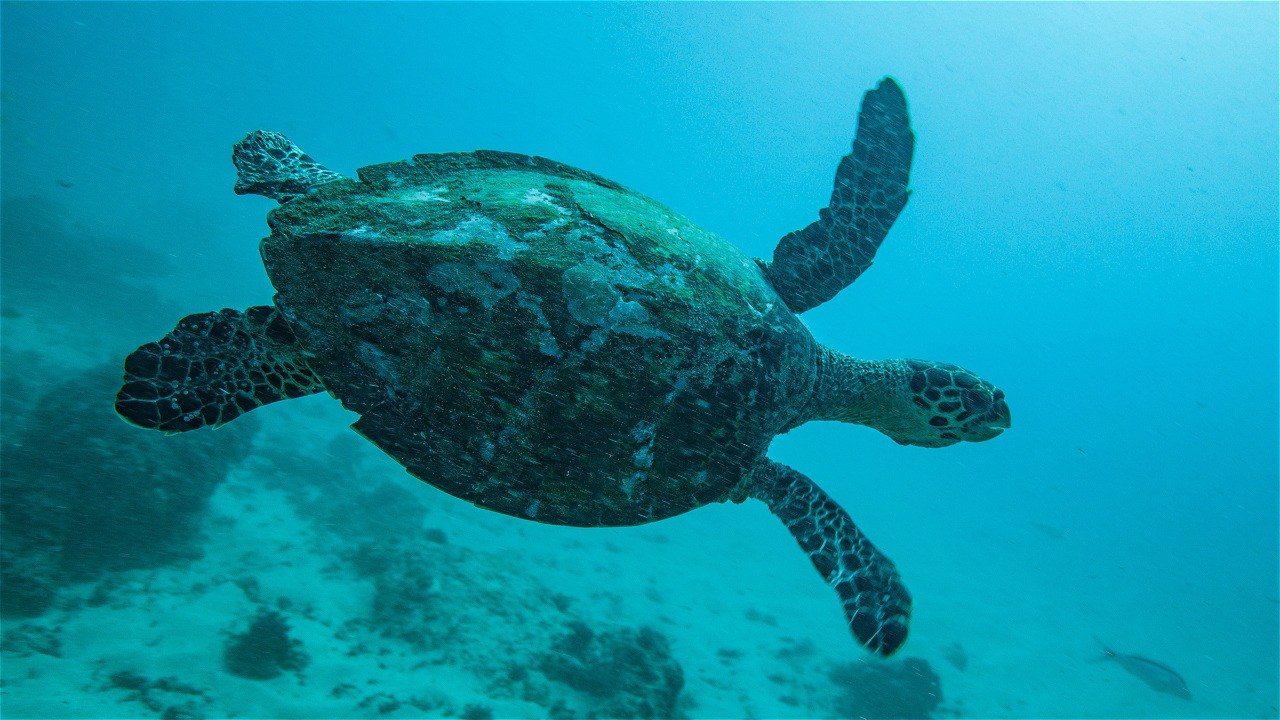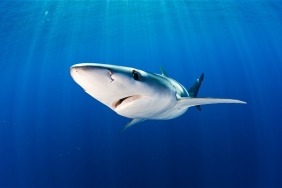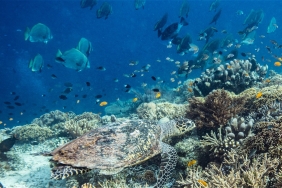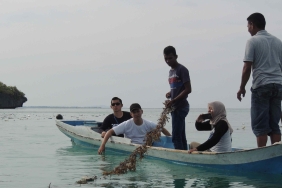RECORD AND IDENTIFY MARINE BIODIVERSITY
By M Rustam H
Conservation areas in Indonesia are an important part of efforts to maintain marine biodiversity and the utilization of aquatic resources. For 20 years, WWF-Indonesia has worked in various conservation priority areas in Indonesia and documented various data and information related to marine and fisheries issues through monitoring activities carried out with partners using agreed protocols. To ensure the validity of the data and information collected, WWF-Indonesia held a workshop on standardization and development of biomonitoring protocols.
The workshop, which took place in Bali on August 15-19, 2014, is an annual activity attended by representatives of teams and partners from several WWF-Indonesia work sites in conservation areas in Indonesia, namely the team from Wakatobi National Park, Solor-Alor Monitoring Team, Kei Islands Monitoring Team, and the team from Cenderawasih Bay National Park. The participants were provided with basic knowledge of marine biodiversity, introduction and training on the use of Android-based application systems in conservation zone mapping, data management training, as well as training and development of biomonitoring protocols. In particular, the participants were given knowledge about coral reefs and reef fishes and how to identify them, such as training on fish estimation and determining the genus of a coral. There was also training on identifying marine mammals and sea turtles.
The workshop was also filled with presentations from representatives of each region/site regarding the development of conservation area activities in their respective regions. The last material on the third day of the workshop was scientific writing training, which aims to increase participants' creativity and expertise in summarizing various data and research in the utilization of marine aquatic resources into a writing or scientific work that is interesting for further research. The workshop then continued with diving activities at three dive sites in Nusa Lembongan and Nusa Penida. This activity aims to train participants in recording and identifying various types of marine biodiversity.
It is expected that the workshop on standardization and development of biomonitoring protocols will enable participants to record and identify various types of marine biodiversity in their respective conservation areas, such as the ability to identify reef fish and coral reefs. The main goal of this workshop is that the results of the data collection can be well managed so that the desired information needs regarding the various types of marine biodiversity that exist and the status of their existence in nature can be useful for the continuation of marine ecosystems in the future.





